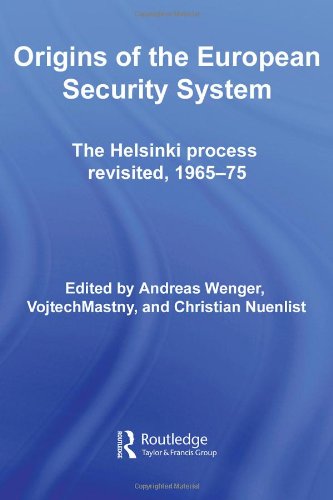

Most ebook files are in PDF format, so you can easily read them using various software such as Foxit Reader or directly on the Google Chrome browser.
Some ebook files are released by publishers in other formats such as .awz, .mobi, .epub, .fb2, etc. You may need to install specific software to read these formats on mobile/PC, such as Calibre.
Please read the tutorial at this link: https://ebookbell.com/faq
We offer FREE conversion to the popular formats you request; however, this may take some time. Therefore, right after payment, please email us, and we will try to provide the service as quickly as possible.
For some exceptional file formats or broken links (if any), please refrain from opening any disputes. Instead, email us first, and we will try to assist within a maximum of 6 hours.
EbookBell Team

5.0
30 reviewsThis edited volume explores the significance of the early ‘Helsinki process’ as a means of redefining and broadening the concept of security during the latter half of the Cold War.
The early Helsinki process introduced innovative confidence-building measures, and made human rights a requirement of a legitimate and well-functioning international system, thus providing the framework for disarmament in Europe in the mid-1980s, as well as the inspiration for the later demise of Communism in Europe. Using newly declassified archives, the book explores the positions of the two superpowers and the crucial impact of European Community member states, which introduced European values into the Cold War debate on security. It also shows how Eastern and Central European nations, such as Poland, did not restrict themselves to providing support to Moscow but, rather, pursued interests of their own. The volume sheds light on the complementary role of the neutrals as mediators and special negotiators in the multilateral negotiations; on the interdependence of politics and economics; and on the link between military security and the CSCE process.